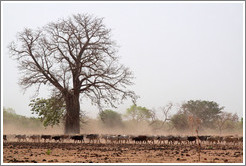|
The Gambia is the smallest country in continental Africa. An anglophone nation, it is almost completely surrounded by Senegal, a francophone nation; the Gambia also has a short (50 mile) coastline on the Atlantic Ocean which is popular with European beachgoers.
Although the Gambia is poor, it is one of the safest countries in Africa. A German diplomat living in the Gambia told me that she feels safer with her children in the Gambia than in Europe. The Gambia is predominantly Muslim, though I didn't find it uncommon to see women showing their hair (or wig) or a bare shoulder.
The wild chimpanzee populations indigenous to the Gambia died out many years ago, however I had the opportunity to visit a Chimpanzee Rehabilitation Project, where chimpanzees formerly in captivity have been reintroduced to a natural habitat. Vervet monkeys, baboons, and red colobus monkeys are abundant in the Gambia.
Farafenni
Farafenni is a market town on the North Bank Road, the Gambia's major, paved east-west road.
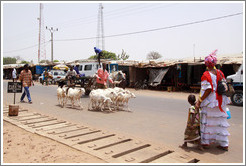
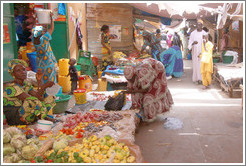
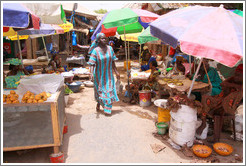
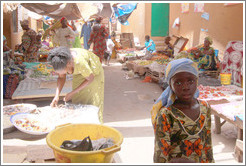
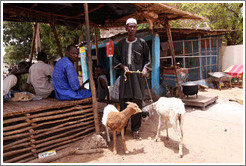
Villages
Many small villages line the North Bank Road. Typically these contain complexes of huts with thatched roofs. One village had a mosque.
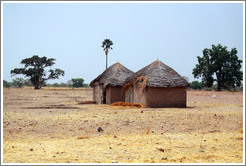
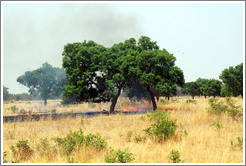
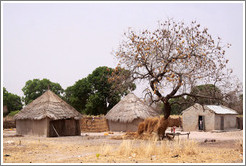
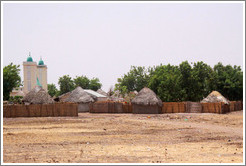
River Gambia
The country of the Gambia is very narrow from north to south. From east to west, it follows the path of the River Gambia.
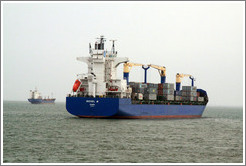
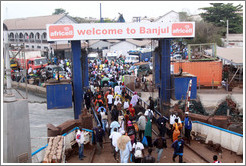
River Gambia National Park
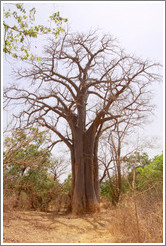
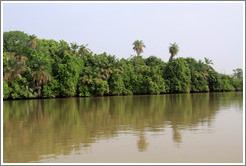
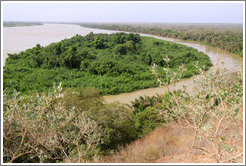
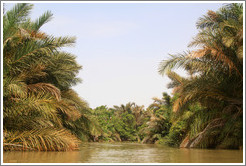
Chimpanzee Rehabilitation Project
Within the River Gambia National Park is a Chimpanzee Rehabilitation Project in which chimpanzees previously in captivity have been reintroduced to an almost-wild situation. While the chimpanzees live in natural surroundings on a series of wooded islands called the Baboon Islands, they are still provided with food by humans to supplement their diets. This project, founded by Stella Marsden in 1969, has suffered some controversy and a forceable change in ownership, the details of which I don't know.
Visiting and staying there is a mixed experience. The ambience is wonderful, and nothing beats being awakened by the sound of raucous red colobus monkeys in the morning. On the other hand, you're kept far away from the chimpanzees; on tours to the Baboon Islands, 20 meters of water separate you from the shore where the chimpanzees are, and your boat hops quicky around the islands, giving no time to observe individual chimpanzees for more than a few seconds at a time.
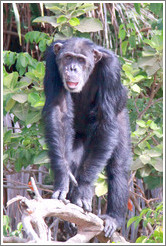
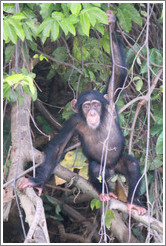
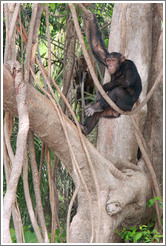
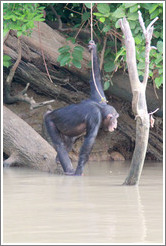
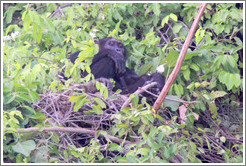
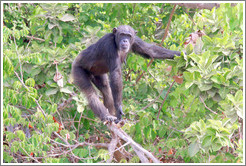
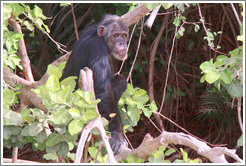
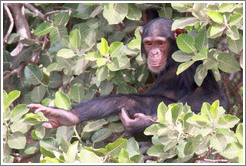
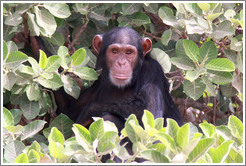
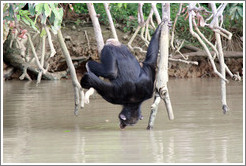
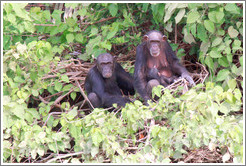
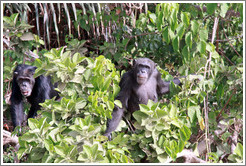
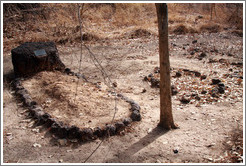 Grave of Chipanzee Rehabilitation Trust founder Stella Marsden next to grave of chimpanzee Zwockle.
Grave of Chipanzee Rehabilitation Trust founder Stella Marsden next to grave of chimpanzee Zwockle.
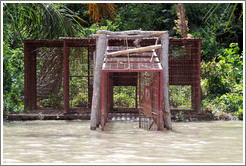 The cage used to introduce the chimpanzees to the island. The cage used to introduce the chimpanzees to the island.
Safari Camp
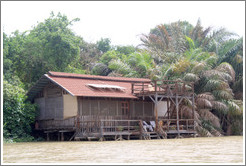
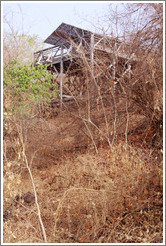
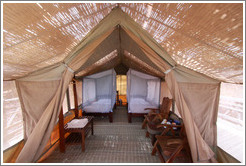
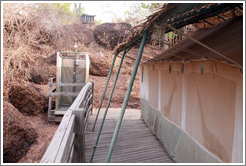
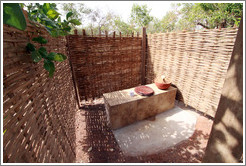
Vervet Monkeys
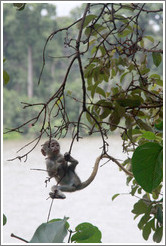
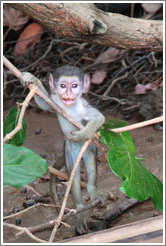
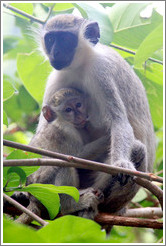
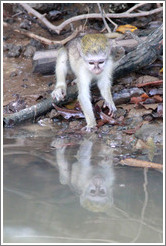
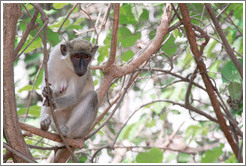
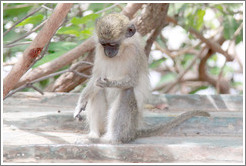
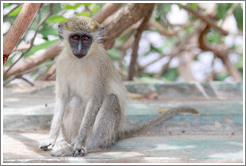
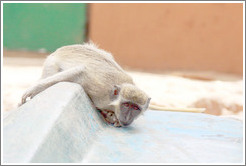
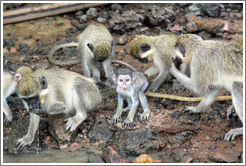
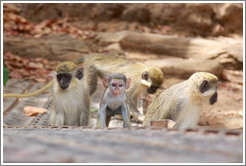
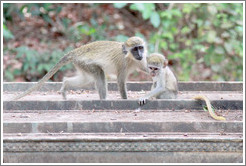
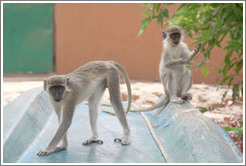
Other Animals of River Gambia National Park
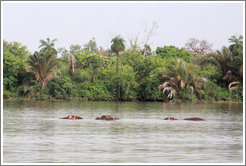
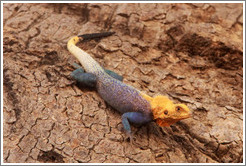
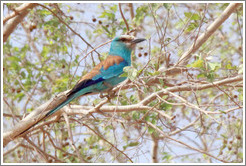
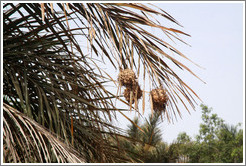
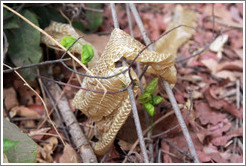
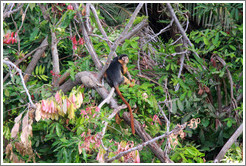
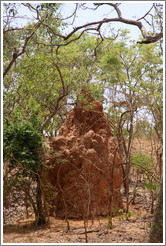 This ant hill is taller than a human.
This ant hill is taller than a human.
Sambel Kunda
Sambel Kunda is a village near the River Gambia National Park.
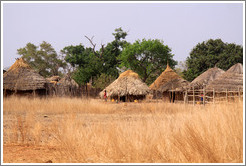
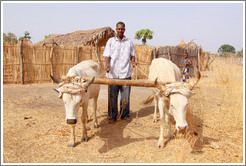
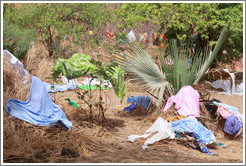
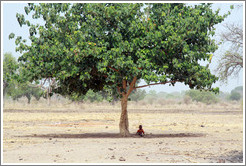
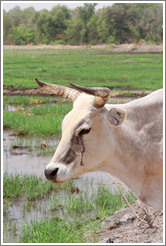
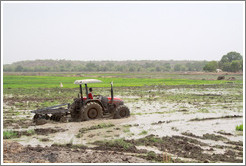
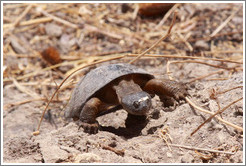
Gambia Horse & Donkey Trust
Within Sambel Kunda is the Gambia Horse & Donkey Trust that rehabilitates horses and donkeys and supports local villagers with education and animal medical treatment.
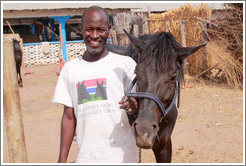
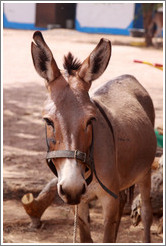
Animals at Kairaba Beach Hotel (Banjul)
The capital city of Banjul is large and built up but still has wild monkeys about. The following photos are from the gardens of the Kairaba beach hotel. The monkeys are wild, though the peacock is not.
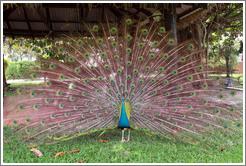
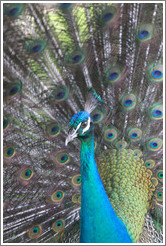
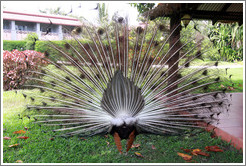
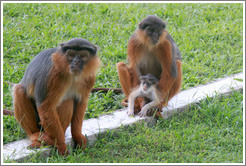
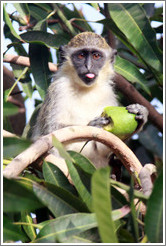
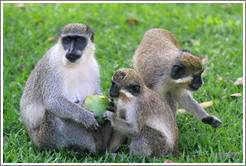
Other
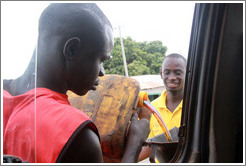 Buying gasoline (petrol).
Buying gasoline (petrol).
|
|
